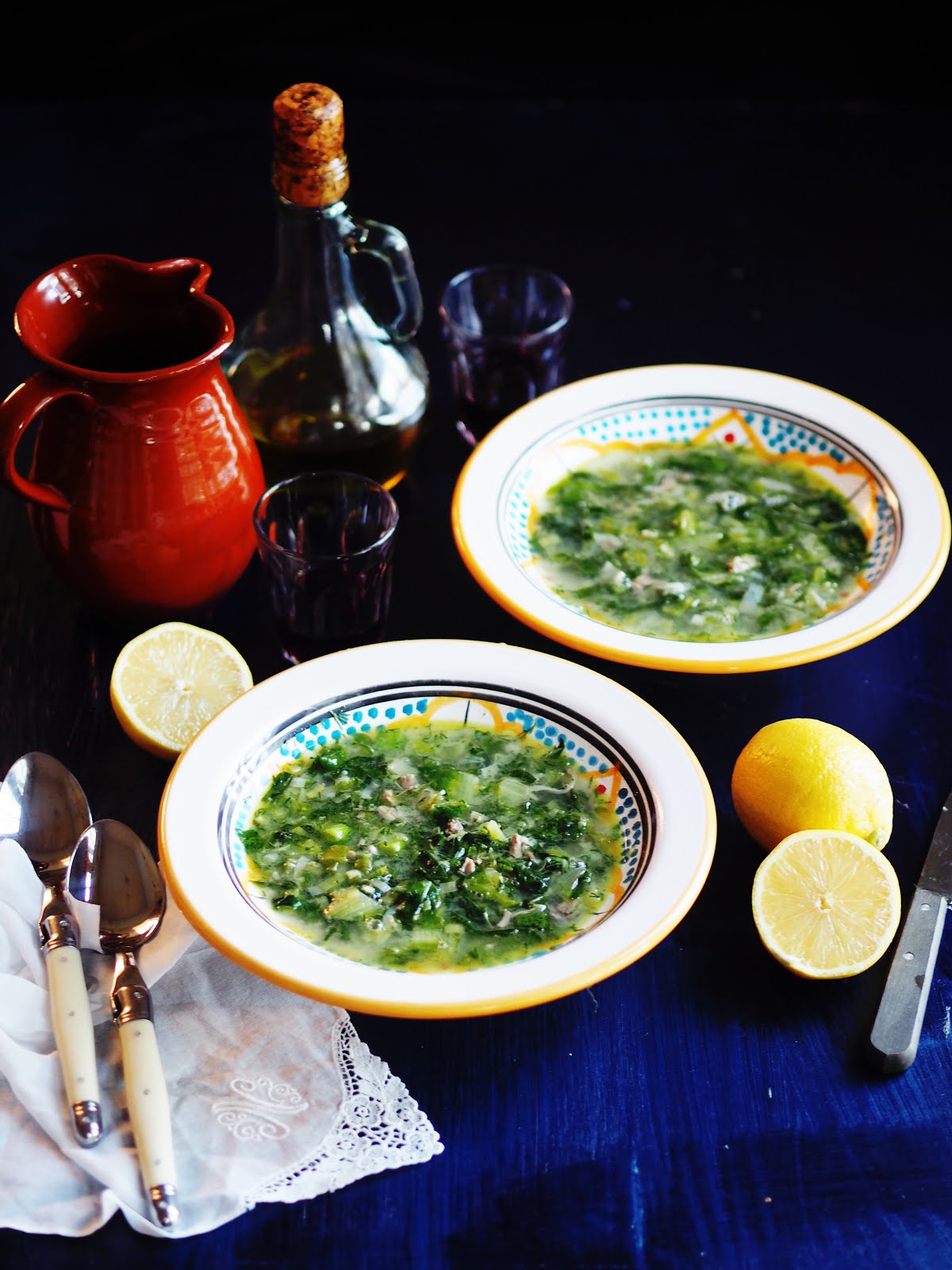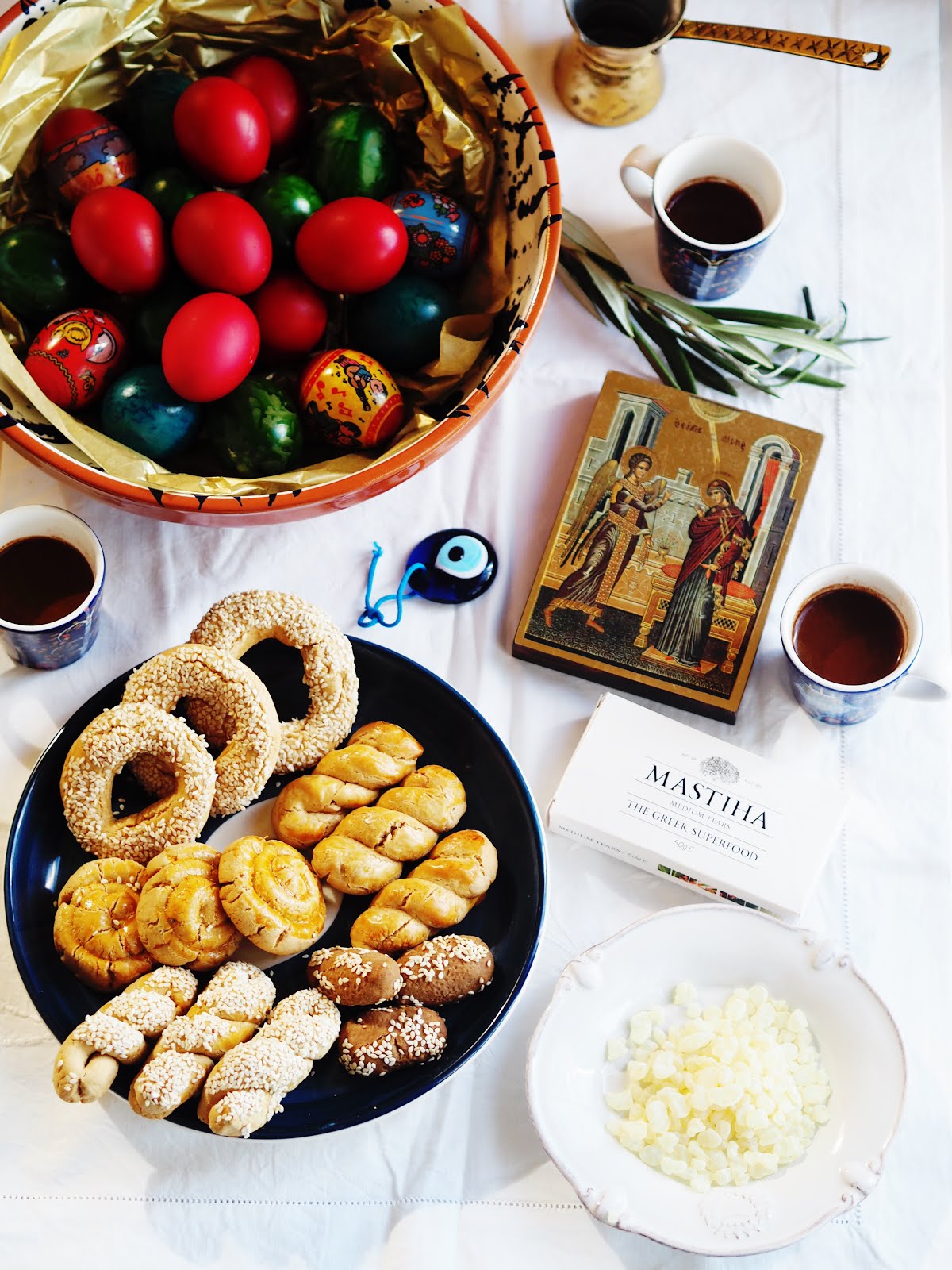Magiritsa (μαγειριτσα): Greek Easter Soup

Magiritsa (μαγειρίτσα) is the traditional soup eaten early on Easter Sunday morning, following the midnight Divine Liturgy of the Greek Orthodox Church, to break the fast of Lent. The soup is prepared on Holy Saturday and many families put the soup on a very low heat to cook, before they leave for church. Traditionally magiritsa is made with all of the offal from the lamb, which is spit roasted for the Paschal meal. The lamb offal is flavoured with spring onions, dill and lettuce. Rice is added towards the end of the simmering process and the stock is thickened with avgolemono. Accompaniments to this dish sometimes include the red, hard boiled eggs, salad, cheese and the Easter bread, tsoureki. I grew up in a household where offal was a rarity, eaten only very occasionally at my grandparent's houses, my mum being more of a pescatarian (although not strictly). My first taste of traditional magiritsa came at my parents in law's home at Easter. It was absolutel

